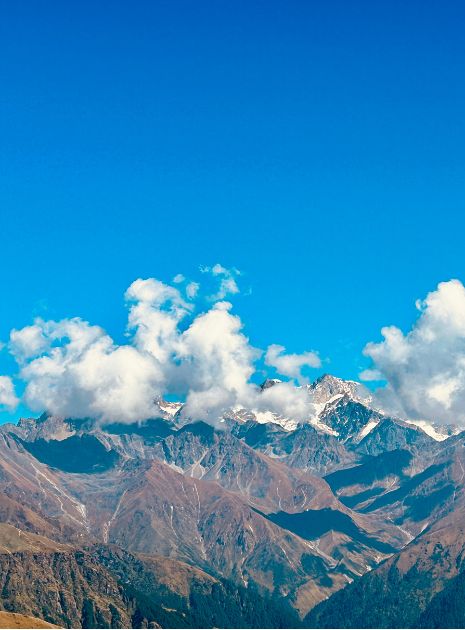Barakot
Tucked quietly near the India-Nepal border, Barakot isn’t a place that asks for attention. You won’t find tourist boards or travel hashtags calling you there. But if you happen to arrive, you’ll understand why it doesn’t need to speak loudly. It’s not trying to be seen. It’s just there, as it always has been. And somehow, that’s enough.
Tucked quietly near the India-Nepal border, Barakot isn’t a place that asks for attention. You won’t find tourist boards or travel hashtags calling you there. But if you happen to arrive, you’ll understand why it doesn’t need to speak loudly. It’s not trying to be seen. It’s just there, as it always has been. And somehow, that’s enough.
The road doesn’t end in Barakot. It simply narrows. You step off the bus or shared jeep, and the dust settles behind you; in front, everything is still. A sleeping dog, clothes drying quietly, and a footpath leading somewhere simple. No welcome signs. No fuss. Yet it doesn’t feel unfamiliar.
Barakot wakes gently. You hear a brass lota (लोटा) set down by a well. Fire catching inside a chulha (चूल्हा). A kettle whistles. Soft sounds, never abrupt. You step outside, shawl around your shoulders, and sit. The cold doesn’t push you away. It stays like an old friend.
In Barakot, people don’t rush. They walk without hurrying, speak without filling the silence. No one asks who you are. But they make room for you. A smile. A place on a bench warmed by the sun. That’s their way of saying you’re welcome.
Barakot sits near the line between India and Nepal, but you wouldn’t know unless someone told you. Languages blur. Bhojpuri, Kumaoni, Nepali. So do customs. Festivals, food, even lullabies. No one claims ownership. Everything is shared. The border, here, doesn’t divide. It connects.
Lunch is never formal. You’re invited in with a quiet "आइये" (please come). A plate appears. Roti. Sabzi. A bit of . Aachar (अचार) that wakes up your tongue. You eat. They insist on more. You leave full, not just in your stomach, but in your spirit.
Walk a little beyond the homes, and trees begin. No names, no gates. Just forest. Stones. Silence. You sit down on a rock, now not awaiting something, no longer wondering too much. And you live longer than you supposed to, due to the fact that it feels like it’s doing something to you.
Evenings fall slowly in Barakot, not all at once. The hills darken. A temple bell rings. A diya (दीया) flickers. Cows return without being called. Smoke rises from rooftops, wearing the fragrance of cumin in warm oil. You pull your scarf near. Nothing desires you, and nevertheless, you work on everything.
When it’s time to depart, there’s no rite. A woman nods from her doorway. The boy with the lota runs past again. You walk to the road. The jeep arrives. You look back once, not because you have to, but because something asks you to.
Barakot doesn’t hand you stories. It lets you find them. In silence. In shared food. In footsteps on a nameless path. It stays with you, not in photographs or souvenirs, but in the way you learn to sit still. To breathe slower. To listen without expecting sound.
| All Sub Districts | ||
|---|---|---|
| Pati | Purnagiri Dham | Pulla Gumdesh |

Uttarakhand is not simply another country. People here name it Devbhoomi (देवभूमि), the Land of the Gods. And it feels that way. Rivers begin right he......
See Details